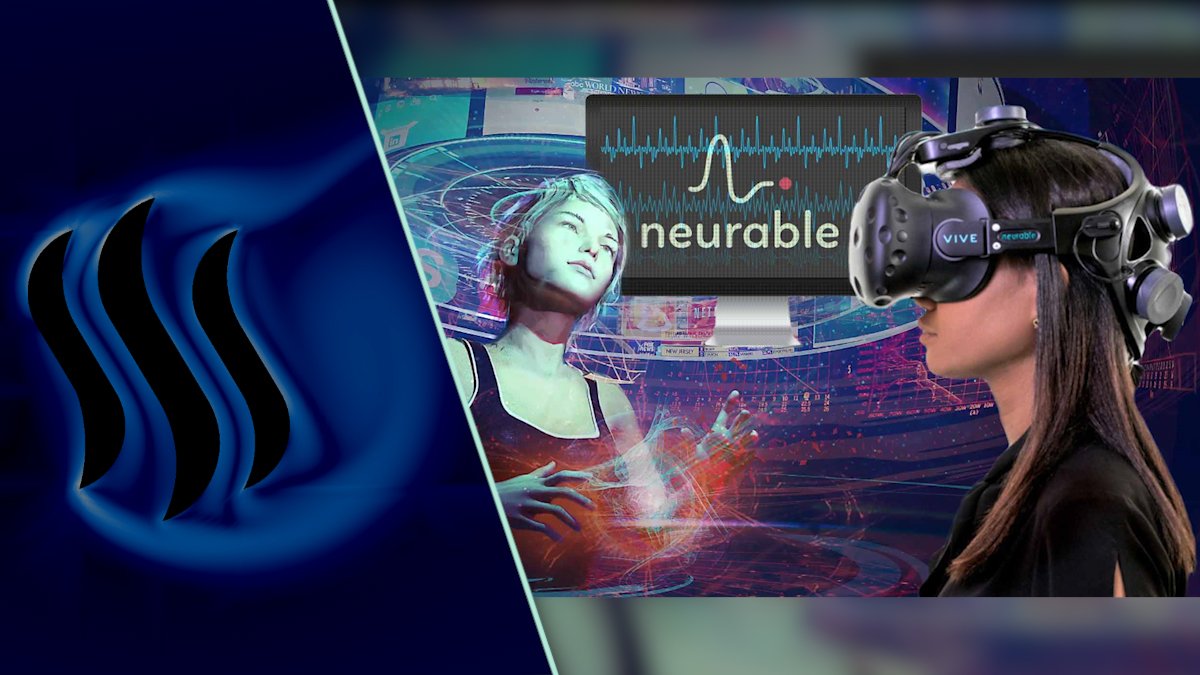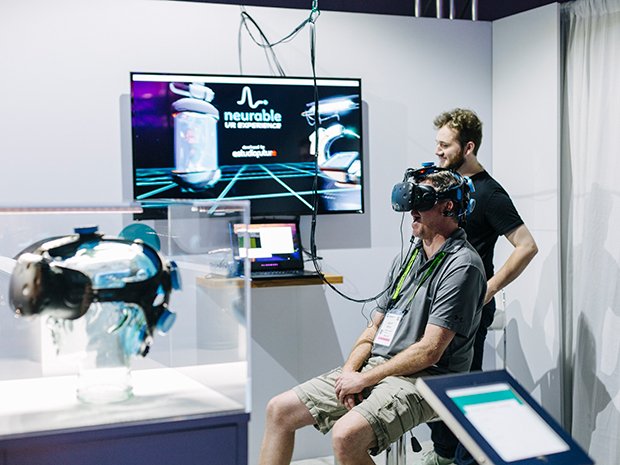
Virtual Reality makes you feel like you're in a totally different world - a virtual world where the possibilities are nearly limitless.
Depending on the game, you could encounter fantasy creatures, explore ancient times, or have superpowers.
But what if Virtual Reality could give you an actual superpower - telekinesis?
What if you could play the VR game without a controller - but instead, only with your MIND?
The tech startup Neurable has now released the very first mind-controlled Virtual Reality game!
Neurable develops brain-computer-interfaces (BCI's), which means they're working on tech that's only controlled with our mind.
The concept itself is not entirely new - there are already several mind-controlled gadgets out there, and one of these will actually be featured in a future post soon!
But this is the first time that a Brain-Computer-Interface is being used to control a Virtual Reality Game.
We foresee an ecosystem of control inputs that will combine to make AR/VR environments incredibly responsive and adaptive to user behavior. Great strides have already been made with motion capture, haptics, eye-tracking, and natural language processing. What has been missing is a serious effort to link mixed reality to the ultimate computing platform — the human brain.
Neurable develops brain-computer interfaces (BCIs) for next-generation computing platforms. Our revolutionary technology allows people to interact with AR/VR environments using only their brain activity.
How does it work?
Neurable has created an add-on to the existing HTC Vive VR headset.
It replaces the strap at the back of the regular headset, and instead puts electrodes in specific areas that measure certain brain signals called “event-related potentials.”
Unlike other Brain-computer interfaces that usually work with EEG signals, these event-related potentials are tiny electric changes in the brain that are linked to sensory experiences, movements, or thoughts as they occur.
Neurable’s BCI platform uses machine learning to classify EEG control signals in real time. By combining our proprietary algorithms with unique neuroscience insights, Neurable achieves levels of performance that far exceed traditional BCIs.

Take a look at the GIF below.
This woman is controlling a photo album in VR only with her mind.
As her gaze wanders across the different areas of the screen, individual pictures are being highlighted.
Neurable can detect and analyze changes in brain activity that let the device know which photo the woman wants to select - in this case, the parrot. And this is just one of many examples that show how user interfaces for VR can function as "natural extension" of brain activity.

About the game
Neurable isn't a gaming company - they're a team of scientists.
They have teamed up with the spanish gaming developer Estudiofuture to create "Awakening" as the first game to demonstrate Neurable's Technology for VR.
The game was presented last week at the computer graphics conference SIGGRAPH in Los Angeles.
The storyline of "Awakening" is similar to the TV show "Stranger Things":
The player is a child that wakes up in a science laboratory operated by the government. He discovers that he had undergone experiments which resulted in him getting telekinetic powers!
Now, the player has to escape from their cell, fight his way past the robotic prison guards, and find a way out of the lab.
Neurable is encouraging other gaming developers to cooperate with them and create new games using their technology in the future!

The future of Brain-Computer-Interfaces and Virtual Reality
BCI's offer many different benefits for Virtual Reality gaming. For one, it can make tasks easier and faster that are nearly impossible when you can't see your body, for example typing text. You could just think what you want to write!
Additionally, BCI's could eliminate the learning curve in VR - you just think about what you want to do instead of getting used to a controller.
Although this concept won't replace physical controls completely, it still shows that a future without controllers.
But despite VR games being fun and exciting, Neurable has much larger ambitions for their technology.
Their BCI's could be used for much more widespread applications, for example tracking brain activity, neuroscience research, mind-controlled web development or brainwave-based marketing.
Another revolutionary use case would be to help those with locked-in syndrome (being unable to move or talk) to communicate with the outside world through their thoughts.

Gaming is an exciting forum for experimenting with new technology, but the applications for BCIs extend far beyond entertainment. As AR/VR devices move from early adopters to broader use cases in health, education, industry and more, interfaces will evolve to support more complex tasks. In the long run, we expect that AR/VR headset companies will integrate brain sensors directly into their products. They will do this because BCI systems radically empower users in mixed reality. Recent announcements and other publicly-available information confirm that major tech companies are actively developing BCI technology for commercial applications.What the touch interface became to smart phones, BCIs will become to mixed reality headsets.

© Sirwinchester

